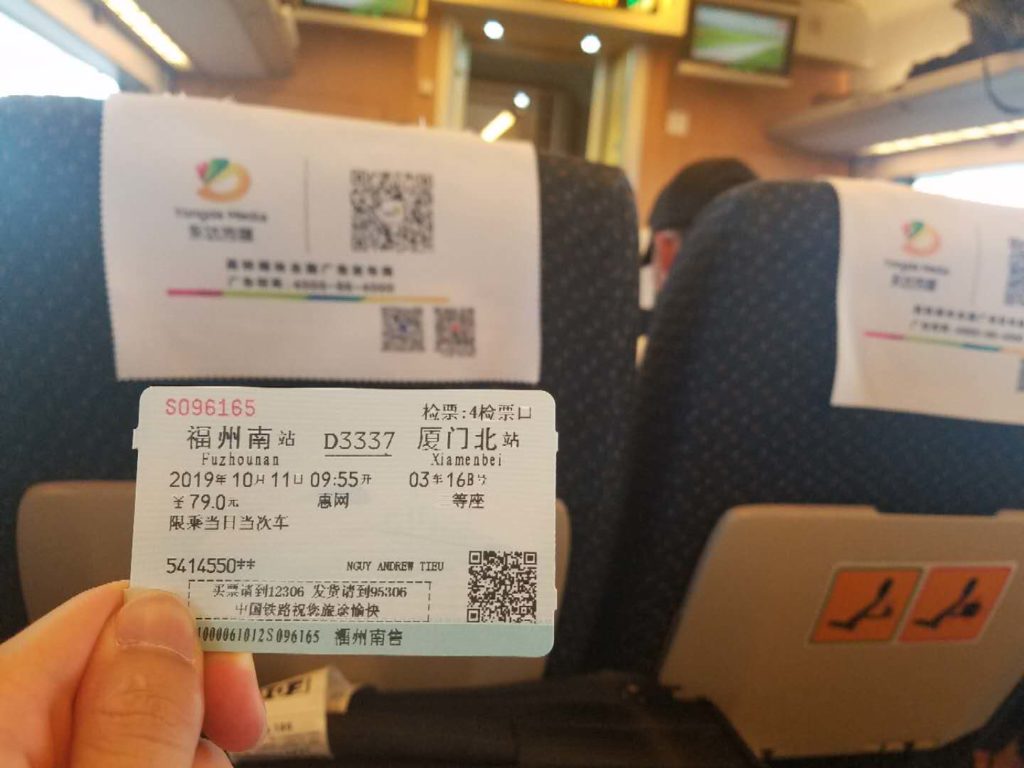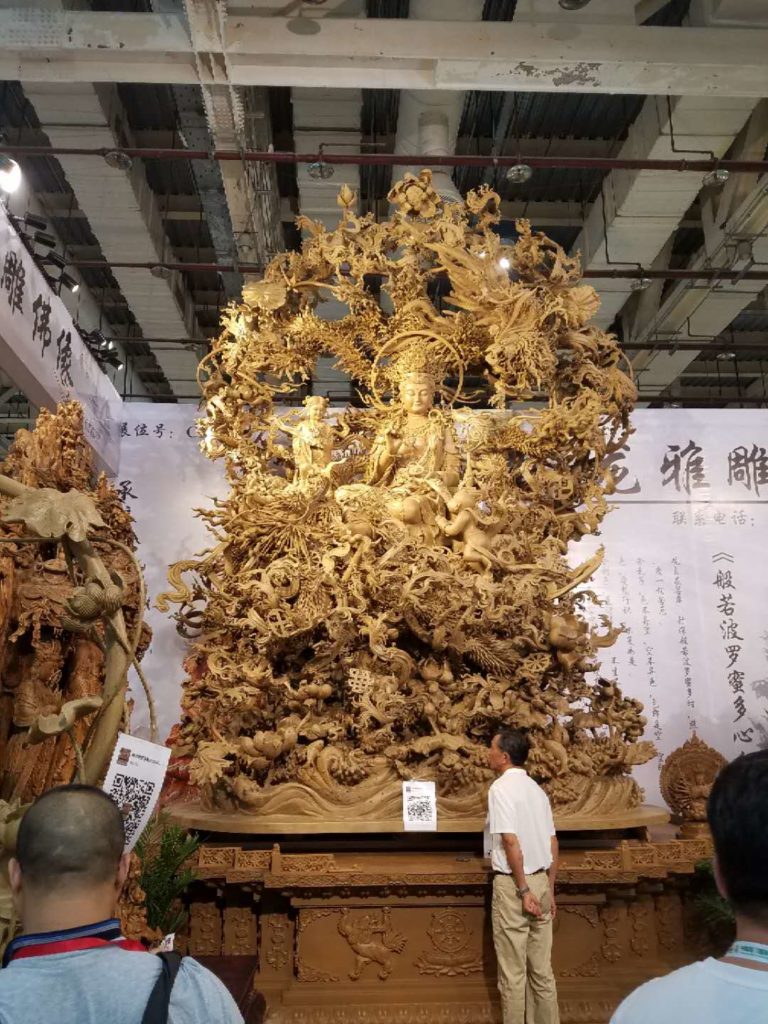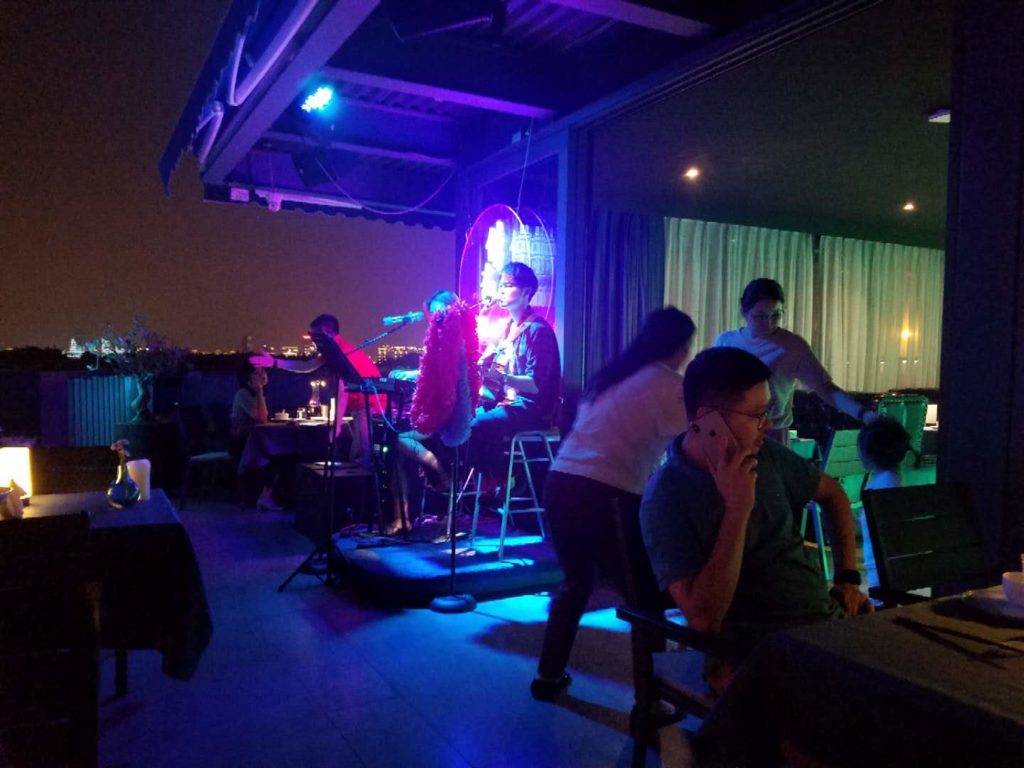First off, sorry for the delay—there have been some internet connectivity issues preventing me from uploading photos until now.
I woke up at 7 am on Friday and began my journey to Xiamen for the International Tea Expo.

After breakfast with Sangwon, I went took the subway to the train station and eventually boarded. My seat was next to an old granny who was talking on the phone in Hokkien. After she hung up, she turned to me and asked—in Hokkien—why I didn’t stow my luggage in the slots above us.
“It’s too heavy,” I replied to her in Teochew.
She nodded in understanding.
A few seconds past and she turned to me again.
“Where are you from?” she asked.
“Chaozhou,” I answered, wondering if I could actually pass for a Chaozhou native.
She nodded again and fell silent. I had passed the test—or so I thought.
“No,” she suddenly said. “You’re accent sounds like it’s from Chaoyang, not Chaozhou proper.”
I was shocked. Were the regional variants of Teochew so drastically different? She must have seen the shock on my face because she laughed.
“My husband is from Chaozhou, so I know,” she said with a smile.
When I got off the train, I had a quick lunch before taking a shuttle to the expo. After checking in, I began walking towards the tea section.
Unfortunately, I never made it there.
I was greeted by a colossal Buddha statue as Buddhist chants played in the background. I’d have to walk through the Buddhist supply expo before I could reach the tea expo.

I knew I would be distracted and begin to browse, so I set a limit for myself. I would go to the tea section at 3 pm. That’d give me ample time to get through the Buddhist supplies.
As I walked, the sound of drums, bells, gongs, and woodenfishes surrounded me as all sorts of people walked around testing and purchasing instruments. The smell of fine aloeswood wafted through the air, and in every direction, elaborately carved statuary adorned the halls.
Now, this isn’t to say that everything at the expo was nice. In fact, most were things I would never care for. Countless booths had cheap porcelain statues, plastic statues trying to look fancier than they really are, and fiberglass statues that looked dull and lifeless.
But a few shops caught my attention with their detailed wood carvings and beautiful gold-leaf. While most shopkeepers ignored me, the staff of one of finer wood-carving shops invited me to sit down and drink some tea.
“You… don’t really seem like the typically Buddhist statuary client,” he remarked.
He was right. Most people here were at least twice my age and walked around in monastic robes.
“I’m here on behalf of a friend actually,” I explained. “I’m looking for a statue that has pretty specific requirements—are you able to do a custom order?”
He was quick to accept, and I found myself engaged in a deep conversation over wood carved statues for about an hour. At that point, an anonymous old man sat down near us. He turned to his assistant and muttered something in Japanese.
I turned to them and—in Japanese—asked where they were from.
He introduced himself as Mr. Hoshino from Gunma. While he’s not Buddhist, he made his fortune off of selling Japanese temples Chinese-made items that look close enough to the Japanese quality to pass.
As soon as he realized I could speak Japanese and Mandarin, he pulled me over to interpret for him. It was a bit awkward because most of it was him grilling my new friend about a recent order. The wood color was uneven, meaning the hands of the statue were slightly darker than the body. My young friend apologized profusely and promised to have the issue remedied as Mr. Hoshino threatened to cancel his other orders with them.
As I would find out throughout over the next few hours, Mr. Hoshino is a jerk.
But, he’s a rich jerk, so people typically accommodated his jerkiness.
I found it ridiculous though—wood tones naturally vary, and the shop had already promised to lighten the wood so that the final product would have an even color. That should have been the end of the story.
Instead, we were there for a good while going back and forth until Mr. Hoshino received enough apologies to move on… at which point he decided to drag me along as he crossed off more purchases on his list.
Among the things he wanted were a pair of gilded altar lights, and as he was discussing the down payment for them, I whispered to him that these weren’t gilded with real gold. I didn’t—and still don’t particularly like the guy—but I didn’t like that the manufacturer was being sleazy as well.
He got up immediately to visit a reputable manufacturer from Japan, which confirmed my suspicions. The gilding at the first shop was far too dull to be real gold.

Real gold: shiny. 
Fake gold: dull.
He laughed heartily and thanked me with a pat on the back and insisted that we keep on moving… except I still needed to go to the tea expo and check into my hotel before 6 pm.
And so, I excused myself, and he invited me to dinner later that night. I accepted, although thinking about it now that was a bad idea. I should have just eaten instant noodles alone in my hotel room.
Being vegetarian and trying to eat at the same table as a mega-wealthy Japanese man who enjoys fine steak, seafood, and copious amounts of alcohol is not easy.
Fortunately, we had a fourth guest: the owner of the restaurant we were eating at. Despite having just met, she was incredibly courteous and made sure I had enough things to eat (she had to scold a few waiters and waitresses because they forgot my vegetarian order)…

Throughout the night, he asked me about my language study and how I developed such a keen eye for Buddhist art. I wasn’t sure to answer him—most of it had come from exposure. Again and again, he asked if I was interested in working for him. I smiled and nodded politely.
But I would never work for the guy.
Earlier in the dinner, he mentioned that we were complete opposites, and indeed we were. In his own words, he’s a sleazy businessman who liked to profit greatly off of temples to fund his excessive lifestyle while I’m an austere student with a remarkable eye for Buddhist artwork.
I nodded and smiled faintly.
As the night grew late, I began to take my leave as the restaurant owner whispered to me that he tends to get violent when he’s drunk… and judging by his increasingly snappy attitude, I could tell that the volcano was about to erupt.
In any case, I left the dinner with Mr. Hoshino’s business card with a job offer if I ever ended up unemployed in Japan. I won’t be using it.